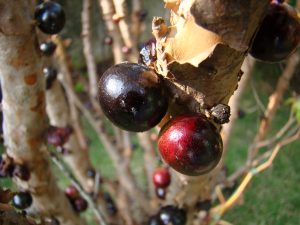15 Natural Remedies Against Paroxysmal Nocturnal Hemoglobinuria (PNH)

Paroxysmal Nocturnal Hemoglobinuria (PNH) is a rare, life-threatening blood disorder that affects the red blood cells, causing them to break down prematurely (a process known as hemolysis). This destruction of red blood cells leads to a range of symptoms, including anemia, fatigue, shortness of breath, dark urine, and increased risk of blood clots and infections. The condition is caused by a mutation in the PIGA gene, which disrupts the formation of certain proteins that protect red blood cells from the immune system.
While there is no cure for PNH, treatments such as medications, blood transfusions, and bone marrow transplants are used to manage symptoms and prevent complications. In addition to conventional medical treatment, incorporating natural remedies can offer complementary support for managing symptoms, improving quality of life, and enhancing overall health. It’s important to note that these natural remedies should not replace medical treatment but should be used in conjunction with professional medical care under the guidance of a healthcare provider.
In this article, we will explore 15 natural remedies that can help manage symptoms of PNH by supporting immune function, improving circulation, and reducing inflammation.
1. Omega-3 Fatty Acids: Reducing Inflammation and Supporting Cardiovascular Health
Omega-3 fatty acids, found in fatty fish (such as salmon, mackerel, and sardines), flaxseeds, and chia seeds, are well-known for their anti-inflammatory properties. PNH can cause chronic inflammation in the body due to the breakdown of red blood cells, which can lead to increased risk of blood clots and cardiovascular issues.
Omega-3 fatty acids help reduce inflammation, improve circulation, and support heart health by preventing blood clot formation. Regular consumption of omega-3-rich foods or supplements (under medical supervision) can help manage symptoms associated with inflammation and reduce the risk of blood clot-related complications.
2. Probiotics: Supporting Immune Function and Gut Health
Probiotics are beneficial bacteria that support a healthy gut microbiome, which plays a key role in regulating immune function. Since PNH weakens the immune system and increases susceptibility to infections, supporting gut health can help strengthen immune defenses.
Probiotics can be found in fermented foods such as yogurt, kefir, sauerkraut, kimchi, and miso, as well as in high-quality probiotic supplements. These friendly bacteria help maintain gut health, promote better digestion, and enhance the body’s ability to fight off infections. Including probiotics in your daily routine may help reduce the frequency of infections in individuals with PNH.
3. Turmeric and Curcumin: Powerful Anti-Inflammatory and Antioxidant Benefits
Turmeric is a golden spice widely recognized for its active compound, curcumin, which has potent anti-inflammatory and antioxidant properties. Chronic inflammation is a significant concern for individuals with PNH, as it can exacerbate hemolysis and increase the risk of complications like blood clots.
Curcumin works by inhibiting pro-inflammatory molecules, reducing oxidative stress, and supporting the body’s natural anti-inflammatory response. Turmeric can be added to meals or consumed as a supplement, but it’s essential to combine it with black pepper (which contains piperine) and healthy fats for better absorption. Always consult a healthcare provider before adding curcumin supplements, especially for individuals taking blood-thinning medications.
4. Ginger: Anti-Inflammatory and Circulatory Benefits
Ginger is another natural anti-inflammatory remedy that can help individuals with PNH manage symptoms related to inflammation and poor circulation. Gingerol, the active compound in ginger, has been shown to reduce inflammation and improve blood flow, which may help prevent blood clots—a serious risk for those with PNH.
Incorporating ginger into your diet through fresh ginger root, ginger tea, or supplements may help alleviate inflammation and promote better circulation. Ginger also aids digestion and supports immune health, making it a well-rounded remedy for managing PNH symptoms.
5. Green Tea: Rich in Antioxidants and Anti-Clotting Properties
Green tea is rich in polyphenols and antioxidants, particularly catechins, which help reduce oxidative stress and inflammation in the body. For individuals with PNH, these antioxidant properties may help protect red blood cells from damage and reduce the risk of complications like thrombosis (blood clots).
Studies suggest that green tea may also have anti-clotting properties, helping to prevent the formation of blood clots in individuals who are at higher risk. Drinking 1-2 cups of green tea daily can offer antioxidant protection and support cardiovascular health. However, those on blood-thinning medications should consult their doctor before increasing their green tea intake.
6. Magnesium: Supporting Muscle Function and Heart Health
Magnesium is a critical mineral involved in over 300 biochemical reactions in the body, including muscle function, nerve transmission, and heart health. Individuals with PNH often experience muscle weakness, fatigue, and poor circulation, making magnesium an important nutrient to focus on.
Magnesium helps regulate muscle contractions, reduces the risk of muscle cramps, and supports vascular health by promoting better blood flow. Magnesium-rich foods include:
In some cases, a magnesium supplement may be recommended, but always consult your healthcare provider before starting any new supplements, especially if you have kidney issues or are on medications that affect magnesium levels.
7. Vitamin C: Boosting Immune Health and Reducing Oxidative Stress
Vitamin C is a powerful antioxidant that plays a crucial role in immune function and reducing oxidative stress. For individuals with PNH, vitamin C can help protect red blood cells from oxidative damage caused by hemolysis and support the immune system in fighting off infections.
Vitamin C also supports collagen production, which helps maintain the integrity of blood vessels and promotes overall cardiovascular health. Vitamin C-rich foods include:
- Citrus fruits (oranges, lemons)
- Bell peppers
- Broccoli
- Berries
- Kiwi
While it’s important to consume enough vitamin C through diet, high-dose vitamin C supplements should be taken under the supervision of a healthcare provider, as they can sometimes lead to complications in individuals with certain health conditions.
8. Coenzyme Q10 (CoQ10): Supporting Cellular Energy and Heart Health
Coenzyme Q10 (CoQ10) is a naturally occurring compound that plays a critical role in cellular energy production and acts as a powerful antioxidant. CoQ10 is particularly beneficial for individuals with PNH, as it helps protect red blood cells from oxidative damage and supports overall cardiovascular health.
CoQ10 can be found in small amounts in foods like fatty fish, organ meats, and whole grains, but supplementation may be necessary to achieve therapeutic levels. CoQ10 supplements may help reduce fatigue, improve muscle function, and support heart health in individuals with PNH. However, always consult a healthcare provider before starting CoQ10 supplements, especially if you are taking statins or other medications.
9. Nettle Leaf: A Natural Iron Booster
Nettle leaf is a traditional herbal remedy known for its high iron content, making it beneficial for individuals with anemia—a common symptom of PNH. Iron is essential for the production of hemoglobin, the protein in red blood cells that carries oxygen throughout the body.
In addition to its iron-boosting properties, nettle leaf has anti-inflammatory and antioxidant effects that can help reduce inflammation and support immune health. Nettle leaf can be consumed as a tea or in supplement form, but it’s essential to monitor iron levels closely and consult a healthcare provider before taking any iron supplements, as too much iron can lead to complications.
10. Hawthorn: Supporting Cardiovascular Health
Hawthorn is a medicinal herb traditionally used to support heart health and improve circulation. Hawthorn contains powerful antioxidants, including flavonoids, that help protect blood vessels from oxidative damage and improve overall vascular function.
For individuals with PNH, hawthorn may help reduce the risk of cardiovascular complications, such as blood clots and heart failure, by improving blood flow and reducing inflammation in the vascular system. Hawthorn can be consumed as a tea, tincture, or supplement, but it’s important to consult a healthcare provider before using it, especially if you are taking blood pressure or heart medications.
11. Dandelion Root: Supporting Liver Detoxification and Reducing Inflammation
Dandelion root is a natural detoxifying herb that supports liver function and helps remove toxins from the body. Since the liver plays a crucial role in filtering toxins and breaking down red blood cells, supporting liver health is essential for individuals with PNH.
Dandelion root has anti-inflammatory properties that can help reduce inflammation in the body, improve digestion, and support healthy circulation. It can be consumed as a tea or in supplement form, but individuals with liver conditions or those taking medications should consult a healthcare provider before using dandelion root.
12. Ashwagandha: Adaptogenic Support for Stress and Immune Health
Ashwagandha is an adaptogenic herb that helps the body cope with stress and supports immune function. Chronic stress can exacerbate inflammation and weaken the immune system, both of which are concerns for individuals with PNH.
Ashwagandha helps balance cortisol levels, reduce fatigue, and promote relaxation, making it an excellent natural remedy for managing the physical and emotional stress associated with chronic conditions like PNH. It also has immune-modulating properties that support overall health and resilience. Ashwagandha can be consumed in supplement form or as a tea, but always consult your healthcare provider before using adaptogens, especially if you are on medications.
13. Garlic: Natural Blood Thinner and Immune Booster
Garlic is a natural blood thinner and immune booster that may help prevent blood clot formation and reduce the risk of infections in individuals with PNH. Garlic contains allicin, a compound that has antioxidant, anti-inflammatory, and antimicrobial properties.
Regular consumption of garlic can support heart health, improve circulation, and boost immune defenses. Garlic can be added to meals or taken as a supplement, but individuals on blood-thinning medications should consult their doctor before increasing their garlic intake to avoid excessive thinning of the blood.
14. B Vitamins: Supporting Red Blood Cell Production
B vitamins, particularly B6, B12, and folate, play a crucial role in the production of red blood cells and maintaining healthy hemoglobin levels. Since individuals with PNH often suffer from anemia, ensuring adequate intake of B vitamins is essential for supporting the body’s ability to produce healthy red blood cells.
Foods rich in B vitamins include:
- Leafy greens (spinach, kale)
- Eggs
- Meat (especially liver)
- Legumes
- Whole grains
In some cases, B vitamin supplementation may be necessary to address deficiencies, but it’s essential to consult a healthcare provider before starting any new supplements.
15. Flaxseeds: A Plant-Based Source of Omega-3s and Fiber
Flaxseeds are a rich plant-based source of alpha-linolenic acid (ALA), a type of omega-3 fatty acid that helps reduce inflammation and support cardiovascular health. Flaxseeds are also high in fiber, which supports digestive health and helps regulate blood sugar levels, reducing the strain on the body’s circulatory system.
For individuals with PNH, incorporating ground flaxseeds into meals (such as in smoothies, oatmeal, or yogurt) can provide valuable anti-inflammatory and cardiovascular benefits. However, it’s important to grind flaxseeds before consumption to improve digestibility and nutrient absorption.
Conclusion
Paroxysmal Nocturnal Hemoglobinuria (PNH) is a complex and challenging condition that requires comprehensive medical management. While conventional treatments such as blood transfusions, medications, and bone marrow transplants are essential, natural remedies can provide valuable complementary support for managing symptoms, reducing inflammation, and improving overall health.
Incorporating omega-3 fatty acids, probiotics, turmeric, ginger, green tea, magnesium, vitamin C, CoQ10, nettle leaf, hawthorn, dandelion root, ashwagandha, garlic, B vitamins, and flaxseeds into a holistic care plan can help individuals with PNH manage symptoms and improve their quality of life. However, it’s crucial to consult with healthcare professionals before starting any new supplements or natural remedies, especially for those taking prescription medications.


